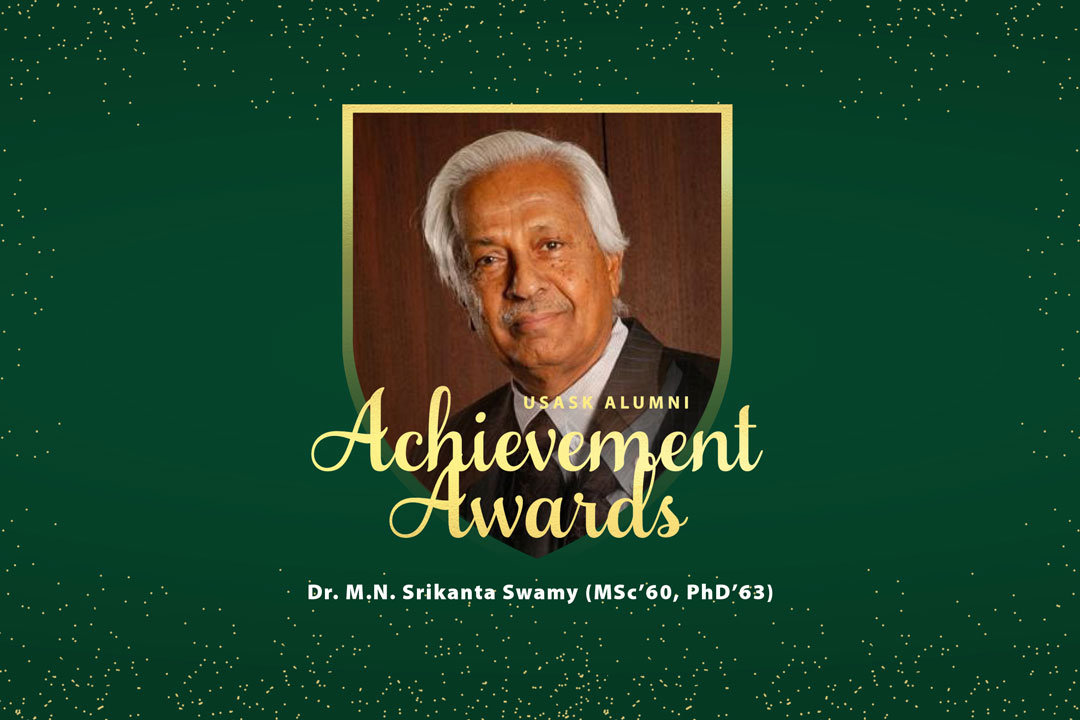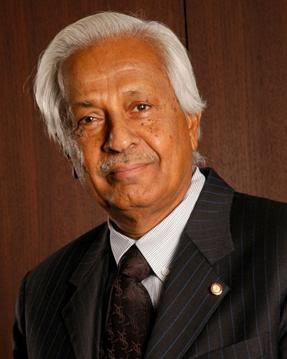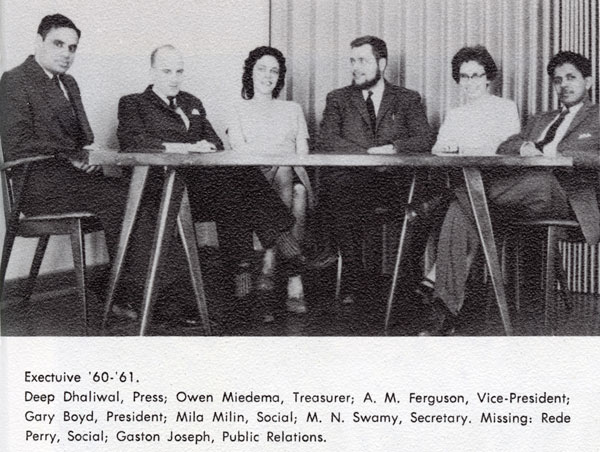
Education was key to success for Swamy
An engineer by trade, his heritage is just as important to Swamy, who received a Lifetime USask Alumni Achievement Award on October 19.
By John Grainger
Children are not always keen to accept parental advice.
For M.N. Srikanta Swamy (MS’60, PhD’63), listening to his dad proved to be the right thing to do.
"For us, education was number one and he told me once, ‘I will not leave you much in terms of money or property, but you will have the highest level of education that you are capable of so that you can stand on your own feet somewhere in the world.' "
Swamy, with an elder sister and two younger brothers, grew up in a middle-class family in the Bangalore region of southern India.
“He encouraged me a lot for higher studies and he told me, ‘Whatever you want to study and how you want to study, I will support you.' He also told me someone can steal your money, but they cannot steal your knowledge,” Swamy said of his father.
Swamy is being honoured this year with a Lifetime Alumni Achievement Award from the University of Saskatchewan (USask) for his pioneering contributions as a researcher and educator. He supervised more than 50 PhD students and has published more than 250 journal articles, holds five patents and has co-authored nine books. Watch what Swamy's nominators say about his exemplary career.
Coming to Canada was not originally on Swamy’s radar as he was encouraged to apply to universities in the United States and England.
Wanting to study electronic control systems, Swamy first looked at Purdue University and other American universities as possible destinations to continue his education.
“I saw a paper from Dr. Arthur Porter who was the dean of engineering at the University of Saskatchewan. I didn’t know anything about Saskatchewan,” recalls Swamy.
“I wrote to him saying that I would like to work in that area. He sent me back a letter which was almost instantaneous. I got a letter from him in one week saying 'I would be very happy to have you.' "
That letter from Porter opened the door for Swamy to come to Canada thanks to a scholarship and assistance of $200 per month.
“That was more than the U.S. universities were offering. And at the same time, I had an opportunity to work with Dr. Porter.”
After arriving in Saskatoon, Swamy started working with Professor Norman Moody, who would later become the head of the Department of Electrical Engineering after Porter left USask for the University of Toronto to launch an industrial engineering program.
“Professor Moody was a fantastic experimentalist. We used to say he could smell an electronic circuit.”
Swamy recalls his first impressions of Saskatoon as a stark contrast from his hometown.
“My first one was this must be a very big place because it has an airport. But then I landed and I was really surprised. The campus was very nice, but the city was very small. That was quite a shock for me because I came from Bangaloru, which had a population of about 600,000. It now has a population of 10-point something million. So, it was quite a shock for me,” said Swamy.
"A friend said to me, ‘Well, this is a place where we don’t have to worry about other extraneous activities. We will be concentrating on our work.' "

Swamy recalls activities on campus or off campus were far and few between for students like himself.
“In those days, there was not much that we could do, particularly on weekends. At the time, even movie theatres were closed on Sundays.”
When he was bored, Swamy and his fellow students would go to the laboratory or the library to occupy their time.
His academic labours paid off as Swamy was one of the first two students to receive a PhD from USask’s College of Engineering.
Swamy has nothing but fond memories of his time at USask and is honoured by receiving the Lifetime Alumni Achievement Award.
“It’s one thing to be recognized in one’s own field, by one’s own peers. But it is something else to be appreciated for one’s own contribution outside of one’s profession. But to be recognized from one’s institution from where they studied is a great honour.”
In fact, Swamy has always kept a fond eye on USask and Saskatoon from afar.
“The university has grown enormously now,” adding he has had a chance to return over the years in an official capacity as Dean of Engineering at Concordia University in Montreal.
Swamy has distinguished himself as a leading researcher and educator with pioneering contributions not only in Canada, but across the world.
Swamy was the founding chair of the Electrical and Computer Engineering department at Concordia.
He is quick to say his proudest accomplishment is taking a mainly undergraduate faculty in engineering to a graduate, research-oriented program and is proud to have watch it evolve and grown in size.
As proud of his engineering achievements, he is proud of his wife Leela and his three children.
“She has been my backbone,” Swamy says of his wife, who is a classically trained musician who plays a traditional stringed instrument called a veena.
Swamy has a daughter and two sons.
He is just as proud of his work to protect his Indian and Sanskrit heritage and helped found a Hindu Studies program at Concordia, the first of its kind in North America.
“I’m thankful to a lot of people, not just Hindus, but people from various backgrounds and denominations have contributed to this.”
Swamy’s father would be proud of his lifelong education as well as his efforts to protect and sustain his Indian culture.
“Oh, yes, I am sure of that. I am sure of that.”
Learn more about all of this year's Alumni Achievement Award winners.

